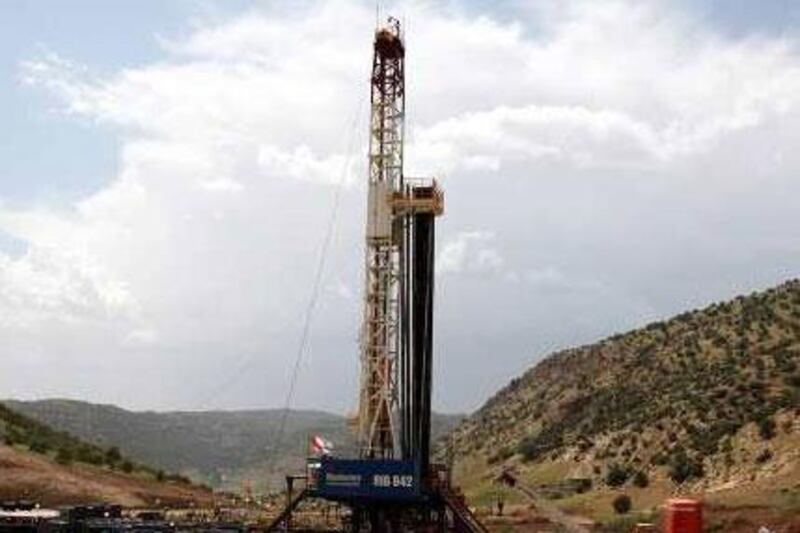Britain's Gulf Keystone Petroleum has found more oil in Iraqi Kurdistan, while Norway's DNO International is restarting its oil operations after settling a dispute with the Kurdish government. Gulf Keystone, a minor oil explorer, said high quality light crude oil flowed from its Shaikan-1 well at rates as high as 2,000 barrels per day during tests, along with up to 2 million cubic feet per day of gas.
Todd Kozel, its chairman and chief executive, said the company's latest discovery was "very significant in its own right" and would "prove very beneficial" to the future development of large reserves of heavier oil it had previously found in deeper rock formations. Tests of the deeper rock layers, drilled by the same well, had uncovered deposits containing between two billion and four billion barrels of crude oil in place, constituting a major discovery.
But the light oil find is particularly good news, as lighter grades of crude have a higher energy content than heavier oils, are easier and less costly to extract, and usually command price premiums because they are easier to refine into high-demand oil products such as petrol. Gulf Keystone did not provide an estimate of the size of its latest oil strike. But it is a further indication of the presence of large, multi-zoned deposits in a region that had seen little exploration activity until recently.
That started to change when the Kurdistan regional government, from 2005 onwards, signed dozens of deals with small and midsized foreign oil firms, inviting them to explore virgin prospects in the semiautonomous enclave. The initiative has yielded several large oil discoveries, including one that Heritage Oil, a Canadian company, announced earlier this year and which is thought to contain up to 3 billion barrels of recoverable oil.
But the foreign firms face many challenges to produce and export crude from the remote, landlocked Iraqi territory, whose local government is at odds with Baghdad. The most intractable is the Iraqi central government's insistence that the companies' production-sharing contracts with the regional government are "illegal". Although Baghdad allowed the Kurds to start exporting oil this summer, the impasse has so far prevented the foreign companies from receiving payment.
A recent three-way spat between DNO, the Kurdish government and the Oslo Stock Exchange over disclosure of the details of a controversial share transaction has further highlighted the risks facing foreign oil producers in Kurdistan. DNO said yesterday the dispute had been settled and the Kurdish authorities had reinstated the company's right to produce oil, following a two-week suspension. But the company also said it would no longer export oil from the Kurdish region after an agreement with Baghdad on a payment mechanism failed to materialise.
"This is one step forward, but also a step back," Carl Christian Bachke, an analyst at the Norwegian brokerage firm Fondsfinans, told Reuters. Nonetheless, DNO's shares surged 30 per cent on the Oslo Bors to close at 4.95 kroner (Dh3.20). Gulf Keystone's stock closed in London at 98.50 pence (Dh5.77), down seven pence. @Email:tcarlisle@thenational.ae





